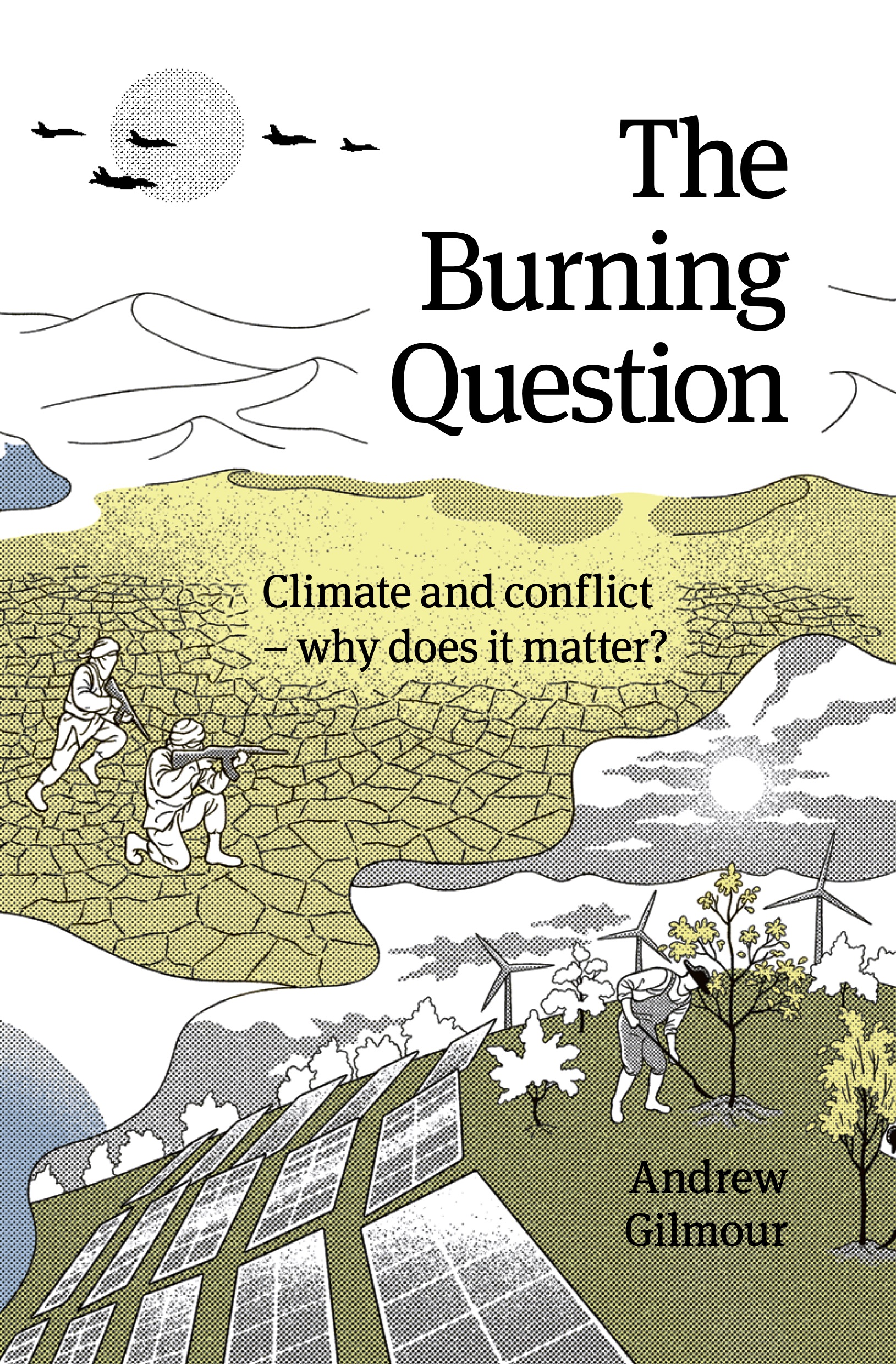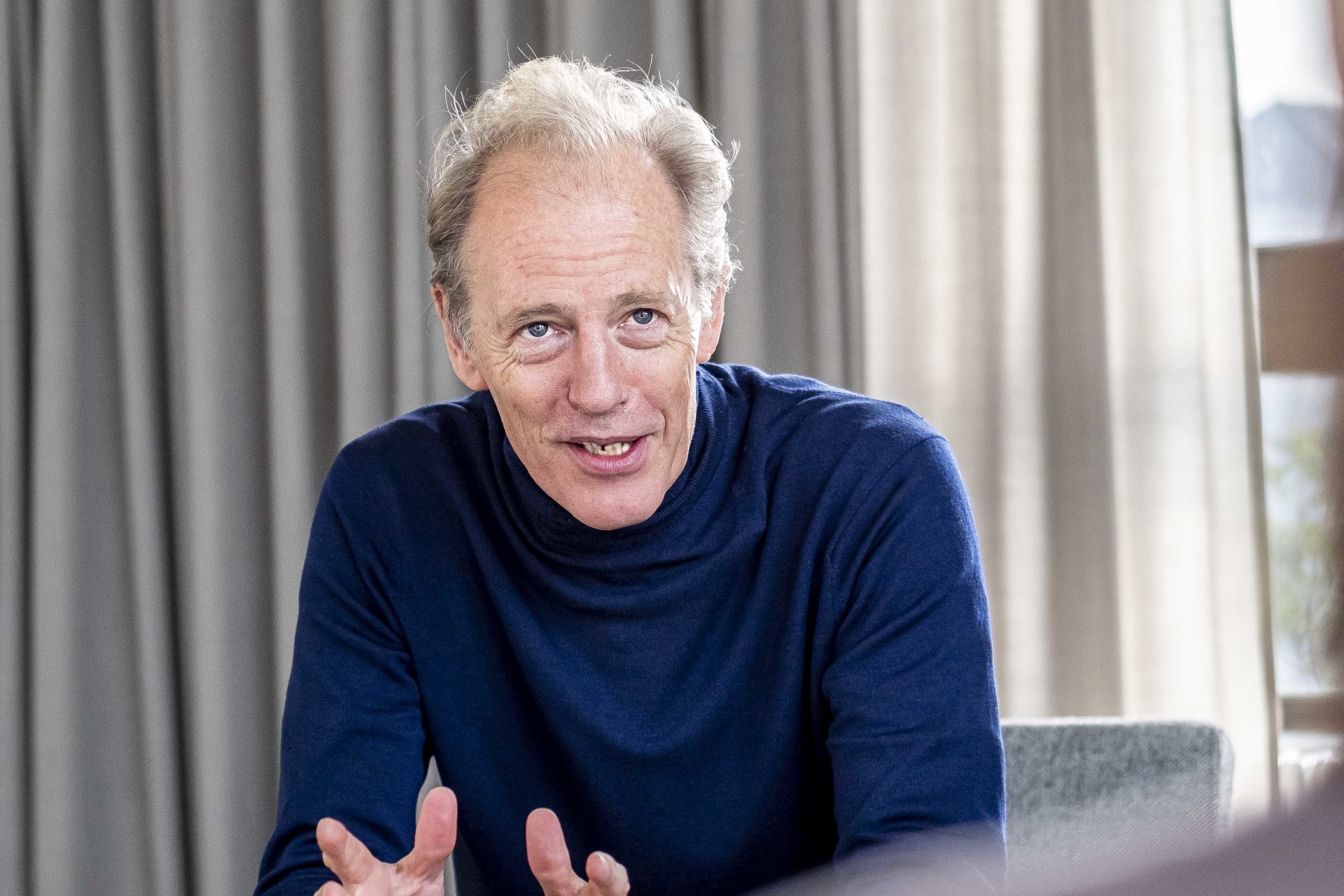Andrew Gilmour speaks to me from Berlin where he is the Executive Director of the Berghof Foundation, an organisation dedicated to peacebuilding and conflict resolution around the world. He’s just come back from a holiday in his native Scotland which, he smilingly informs me, was apparently the only place not blessed with sun.
His current position comes after a 30-year career in the UN in which he worked on conflicts in Afghanistan, Iraq, South Sudan, the Middle East, West Africa, and the Balkans. In 2016 he was appointed to the position of UN Assistant Secretary-General for Human Rights. His new book, The Burning Question, which he worked on as a Visiting Fellow at All Souls College, examines the increasingly pertinent relationship between climate change and conflict.
His career at the UN started in 1989, the week the Berlin Wall came down. This was of course a total paradigm shift in the international order, as the Soviet Union began to crumble, leaving behind the bipolar power politics of the Cold War. I begin by asking him if this time was characterised by a sense of hope for international cooperation and human rights.
“I would absolutely say that”, he says emphatically. “Although there had been some beginnings of detente in the late 80s, and particularly Glasnost and Perestroika, it was the collapse of the Wall, and therefore the fact that each Eastern European country had new liberties and rights they didn’t have before, that had a knock-on effect in the whole international community. It led to peace processes in Central America, with Nicaragua and El Salvador, and certainly in Southern Africa – Angola, Mozambique and Namibia.” It was, he says, “a fine time to be alive.”

Forty years on, the world looks very different. It was hoped that one country that Andrew worked in at the beginning of his career, Afghanistan, would be “welcomed back into the brotherhood of nations” after the last Soviet soldier left in February 1989. Andrew hints at an argument made by some historians that the failure of the Soviet invasion in Afghanistan helped to bring about the end of the USSR and therefore the Cold War. “It’s sad,” he reflects, “that the world hasn’t been able to thank Afghanistan for that contribution.”
Looking at the domestic politics of Western democracies over the past decade it is clear that it is nativism and populism that are on the rise, not liberal internationalism. From Spain to Switzerland to Sweden, parties from the Far-Right have grown to become real electoral contenders, often only kept out of power by quirks of the voting system, as with Reform in our own recent election. Across the board, the main issue for these parties is immigration.
The truth behind the often venomous and vitriolic discourse on international migration is simply that people leave their homes when they can’t live there anymore. This is due to many complex factors, most consistently due to conflict and increasingly due to the effects of climate change. Behind this fact is a huge injustice that those countries most likely to be affected by climate change are those that have contributed the least to it.
“That is what lies at the heart of climate justice,” Andrew explains. “It’s only starting to be discussed, and many people don’t really know what it means. It essentially comes down to this massive injustice that a country like Somalia – perhaps the country in the world that is most affected by the droughts, desertification, flash-flooding, and many other aspects of climate change – has contributed, since 1960, as much greenhouse gas as Americans have in the last two and a half days.” It is therefore in some way incumbent upon ‘us’ in the developed world, to recognise this debt and act accordingly.
I get the sense that, while we’re all broadly aware that climate change has and will continue to cause an uptick in extreme weather events, the notion that it will make whole areas of our planet unliveable is less well understood. This cuts to a core difference between strategies to manage the effects of climate change; namely, mitigation and adaptation.
The issue with mitigation efforts, such as aiming for Net Zero, is essentially that that horse has bolted. “Even if we hit Net Zero,” Andrew explains, “temperatures are still going to rise because of the carbon that’s already accumulated in the atmosphere. There’s a time lag whereby the climate is still going to get worse, therefore we can’t just invest everything in reducing emissions.” Investment has to be made simply to make it possible for people to stay where they’re coming from, “they’ve got to somehow find that life is worth living there.”
The knock-on effects of mass migration for the stability of a country and for the proliferation of conflict are stark and form a part of the central argument of A Burning Question; that climate and conflict are increasingly linked. Andrew shares an example from his career, the worst drought in the history of Mesopotamia which took place between 2007 and 2009 when he was living in the region.
“In both Syria and Iraq, farmers were just absolutely ruined. There was no water whatsoever; their farmlands became deserts. In both countries, large sectors of the population had to leave these boiling dust bowls that had been their families’ farms for centuries and move to cities where they were incredibly unhappy and incredibly poor.”
He continues, “Moreover, in both countries, they were generally Sunni. There was an Alawite regime in Damascus and a Shiite regime in Baghdad, and in both cases they were victimizing Sunni, calling them terrorists. Suddenly in 2014, the Islamic State burst upon everybody’s imaginations, this terrifyingly hardline group. Not to overplay climate – it was the new Shiite regime after the Anglo-US invasion of Iraq that was having trouble with Sunni, and in Syria, they had an incredibly brutal regime that victimized primarily the Sunni majority – but this was a factor. What compounded this was that they had been totally impoverished by climate change and the recent drought.”
This leads us to discuss an example of environmental peacekeeping that his organisation has been undertaking in Southern Iraq. Over recent years, a similar pattern to that previously described has been taking place. Heat waves and water shortages have been causing more frequent crop failures and livestock losses. These factors have displaced people internally towards urban centres such as Basra, where they often find themselves in sub-standard accommodation without access to basic amenities.
As is the case in cities around the world, there isn’t capacity in terms of resources and services to keep up with this kind of urbanisation, and tensions can rise between the newcomers and the long-term residents. The Berghof Foundation works to facilitate dialogue between these communities and centralise climate change in the discussion. This way, Andrew tells me, different communities can come to realise they have common problems and can work together to the benefit of everyone.
To round off a conversation replete with heavy subject matter, I asked Andrew a simple question – does he have hope? “Yes I do,” he said, without hesitation. “I have hope that the younger generation has embraced this cause in a way that the older generations have not yet done. That definitely gives me a source of hope.”
The Burning Question, Climate and Conflict – Why Does it Matter? by Andrew Gilmour (The Berghof Foundation, February 2024) is available from all good booksellers in store and online.







